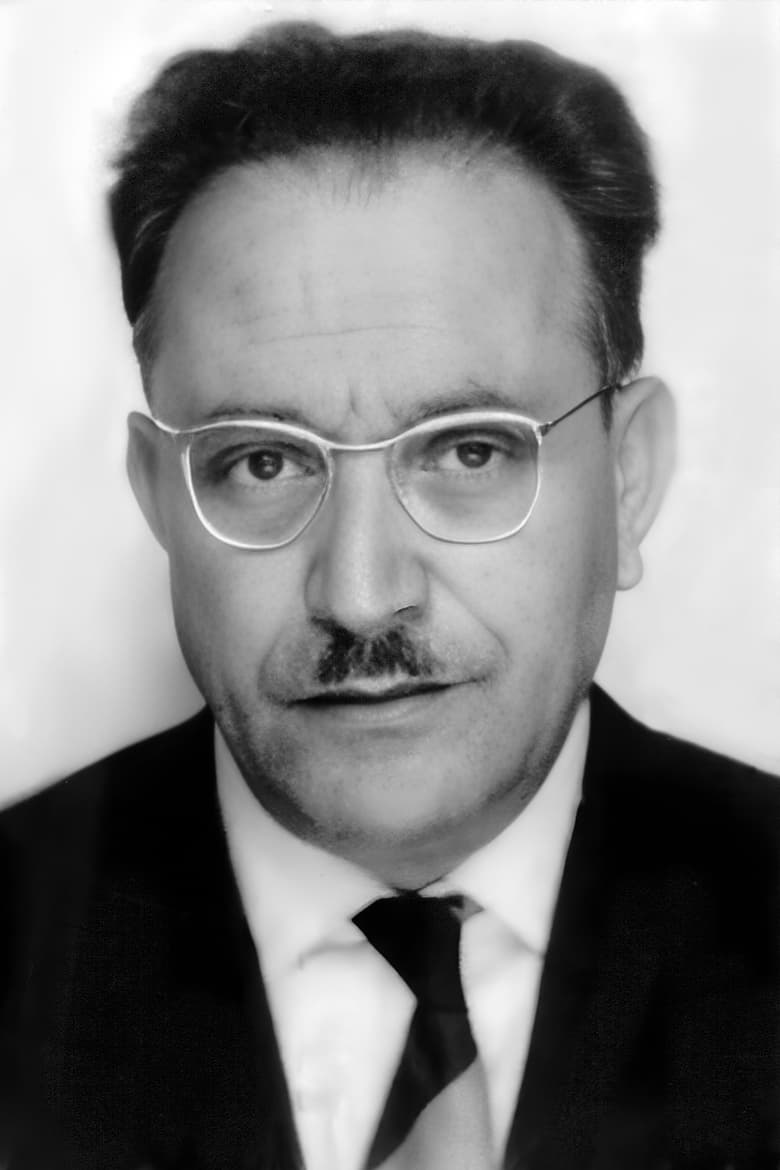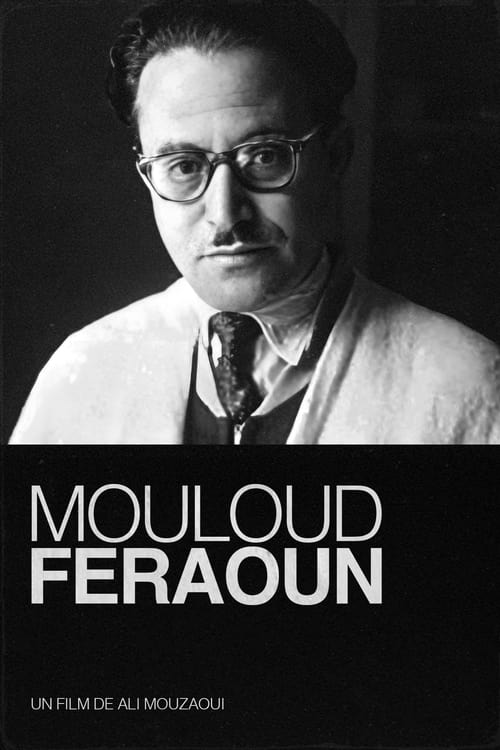Actor: Mouloud Feraoun

Birthday: 1913-03-08
Born in: Tizi Hibel, Algeria
Biography: Mouloud Feraoun (in Kabyle: Mulud At Ceɛban), born March 8, 1913 in Tizi Hibel in Haute Kabylie (Algeria) and died assassinated by the OAS in Algiers on March 15, 1962, is a Algerian speaking writer. His most famous work is the trilogy The Poor Man's Son (1950), The Earth and the Blood (1953) and The Roads That Rise (1957). Born officially on March 8, 1913 in the village of Tizi Hibel, he belongs to the clan (takheroubt) of Aït-Chabane, Feraoun being the name imposed by officers of Native Affairs responsible for the establishment of a civil status for the Algerian populations after the insurrection of 1871. His parents were poor peasants, who had eight children, only five of whom survived. Mouloud is the third of them, and the first son. Since 1910, the father has had the habit of emigrating periodically to mainland France to provide for the needs of his family. In 1928, he suffered an accident and began living on a disability pension. These family, social and cultural roots are preponderant for Mouloud Feraoun, who titles his first autobiographical novel "Le Fils Du Pauvre" and makes Kabyle culture the main component of his identity. He attended Tizi Hibel school from the age of seven. In 1928, he was a scholarship holder at the upper primary school of Tizi Ouzou, then, in 1932, he passed the entrance examination for the normal school of teachers of Bouzareah (today École normale supérieure de Bouzareah), near from Algiers. There he met Emmanuel Roblès. A graduate of the normal school, he began his career as a teacher in Taourirt Aden, a small village in Kabylia. In 1935, he was appointed teacher in Tizi Hibel, where he married Dehbia and had seven children. Mouloud Feraoun began writing his first novel, “Le Fils Du Pauvre” in 1939. The work, praised by critics, won the Grand Prix de la ville d’Algiers. In 1946, he was transferred to Taourirt Moussa Ouamar, commune of Aït Mahmoud. In 1952, he was appointed director of the complementary course at Fort-National. In 1957, promoted to director of the Nador school in Clos-Salembier, he left Kabylia for Algiers. In 1951, he corresponded with Albert Camus. On July 15, he finished “La Terre et le Sang”, a work awarded in 1953 with the Eugène-Dabit prize for the populist novel. The novel tells the life of a Kabyle village which takes a dim view of the return of one of its children who left to work in the mines of northern France. In 1957, Éditions du Seuil published the novel “Les Chemins Qui Montent”. His translation of the poems of Si Mohand Ou Mhand (The Poems of Si Mohand) was published by Éditions de Minuit in 1960. In 1960, Mouloud Feraoun was inspector of social centers (created on the initiative of Germaine Tillion) at Château-Royal near Ben Aknoun. With five of his colleagues, including academy inspector Max Marchand, he was assassinated on March 15, 1962, four days before the ceasefire, by the OAS, which saw it as a hotbed of independence. His Journal, written from 1955 to 1962, was submitted to Seuil in February 1962 and will be published posthumously, as will two last novels, "L'Anniversaire", unfinished, and "La Cité Des Roses", completed but left for a long time unpublished.
Born in: Tizi Hibel, Algeria
Biography: Mouloud Feraoun (in Kabyle: Mulud At Ceɛban), born March 8, 1913 in Tizi Hibel in Haute Kabylie (Algeria) and died assassinated by the OAS in Algiers on March 15, 1962, is a Algerian speaking writer. His most famous work is the trilogy The Poor Man's Son (1950), The Earth and the Blood (1953) and The Roads That Rise (1957). Born officially on March 8, 1913 in the village of Tizi Hibel, he belongs to the clan (takheroubt) of Aït-Chabane, Feraoun being the name imposed by officers of Native Affairs responsible for the establishment of a civil status for the Algerian populations after the insurrection of 1871. His parents were poor peasants, who had eight children, only five of whom survived. Mouloud is the third of them, and the first son. Since 1910, the father has had the habit of emigrating periodically to mainland France to provide for the needs of his family. In 1928, he suffered an accident and began living on a disability pension. These family, social and cultural roots are preponderant for Mouloud Feraoun, who titles his first autobiographical novel "Le Fils Du Pauvre" and makes Kabyle culture the main component of his identity. He attended Tizi Hibel school from the age of seven. In 1928, he was a scholarship holder at the upper primary school of Tizi Ouzou, then, in 1932, he passed the entrance examination for the normal school of teachers of Bouzareah (today École normale supérieure de Bouzareah), near from Algiers. There he met Emmanuel Roblès. A graduate of the normal school, he began his career as a teacher in Taourirt Aden, a small village in Kabylia. In 1935, he was appointed teacher in Tizi Hibel, where he married Dehbia and had seven children. Mouloud Feraoun began writing his first novel, “Le Fils Du Pauvre” in 1939. The work, praised by critics, won the Grand Prix de la ville d’Algiers. In 1946, he was transferred to Taourirt Moussa Ouamar, commune of Aït Mahmoud. In 1952, he was appointed director of the complementary course at Fort-National. In 1957, promoted to director of the Nador school in Clos-Salembier, he left Kabylia for Algiers. In 1951, he corresponded with Albert Camus. On July 15, he finished “La Terre et le Sang”, a work awarded in 1953 with the Eugène-Dabit prize for the populist novel. The novel tells the life of a Kabyle village which takes a dim view of the return of one of its children who left to work in the mines of northern France. In 1957, Éditions du Seuil published the novel “Les Chemins Qui Montent”. His translation of the poems of Si Mohand Ou Mhand (The Poems of Si Mohand) was published by Éditions de Minuit in 1960. In 1960, Mouloud Feraoun was inspector of social centers (created on the initiative of Germaine Tillion) at Château-Royal near Ben Aknoun. With five of his colleagues, including academy inspector Max Marchand, he was assassinated on March 15, 1962, four days before the ceasefire, by the OAS, which saw it as a hotbed of independence. His Journal, written from 1955 to 1962, was submitted to Seuil in February 1962 and will be published posthumously, as will two last novels, "L'Anniversaire", unfinished, and "La Cité Des Roses", completed but left for a long time unpublished.
Known for
10.0
